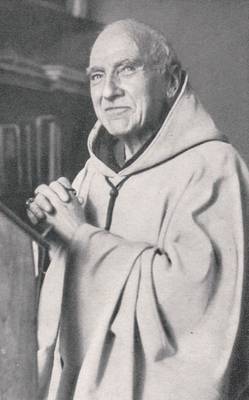Of Mental Prayer in General
MENTAL prayer in general is an interior and silent prayer, by which the soul raises itself to God without the aid of word or formulas, in order to discharge its duty towards Him and to become better.
There is ordinary mental prayer and mystical mental prayer: in other terms, active prayer and passive prayer.
Prayer, like every other meritorious act, requires God’s grace and man’s co-operation; but sometimes the soul’s effort is more manifest, sometimes the divine action.
In active prayer the soul’s effort predominates God’s action is less evident; the supernatural, though very real, remains latent.
In passive prayer God’s action is stronger and goes so far as to reduce the soul to a certain passive state, more or less accentuated according to the degree of mystical union; and when this is well marked, the supernatural is plainly perceptible—almost perceptible—almost palpable. This passive condition, however, interferes with only certain operations of the mind and of the senses; the soul, under God’s action, remains free and capable of meriting even in the state of ecstasy, and it is altogether occupied in contemplating and loving God, sometimes with a marvelous intensity.
Further on, we will speak of these mystical kinds of prayer; for the present, we shall confine ourselves to the ordinary kinds of mental prayer, after having made some general considerations applicable to both.
Of Ordinary Mental Prayer
Active prayer is a kind of mental prayer in which a person raises his mind to God by considerations or by a simple look, and his will by pious affections, petitions, and resolutions.
God gives His interior and hidden grace, and the soul endeavors to turn towards Him. According to the saying of St. Teresa, the soul in this stage is like a gardener, who, with much labor, draws the water up from the depths of the well to water his plants and flowers.
These efforts of the soul consist of two operations; one belongs to the thinking faculty which applies the imagination, the memory, the understanding to consider some truth or mystery, to turn it over and over, to convince itself of it and to penetrate it. This is what is called the consideration or the meditation. Later, it will concentrate the mind’s attention upon God without the roundabout ways and turmoil of reasonings, and this will be the simple look of contemplation. The other operation is dependent on the will, and makes us love, desire, ask the good proposed by the mind, and make resolutions to arrive at it; this is prayer—mental prayer properly so called.
The considerations are not a mere speculative study; they are not made in order to learn or to know, but to inflame the heart, and set the will in motion. The mind’s eye is fixed upon some truth in order to believe it, upon some virtue in order to love and seek it, upon some duty to fulfill it, upon more evil to detest and fly from it, upon some danger to avoid it. In a word, meditation ought to lead to love and to action.
In the early stages of the spiritual life, considerations occupy a large place, because we have need to strengthen our faith; later on, in proportion as the practice of mental prayer and of virtue has penetrated the soul with profound convictions, considerations progressively diminish, and end by giving place to a simple thought, to a simple attentive look. On the other hand, affections, at first rare and wordy, go on increasing; they gain all the ground that considerations lose; they too, are after a time simplified, becoming shorter and more numerous, and the soul ends by attaching itself to a few affections only, which suffice for its needs and its attractions.
This article is taken from a chapter in The Ways of Mental Prayer by Rt. Rev. Dom Vitalis Lehodey which is available from TAN Books.









